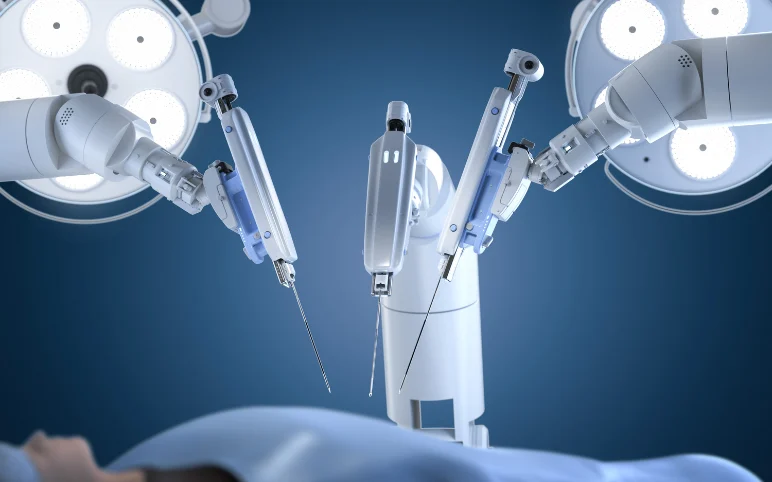Xtant Medical Announced the Launch of SimipliGraft TM and SimpliMaxTM for Chronic and Acute Wounds
On April 30, 2024, Xtant Medical Holdings, Inc., a global medical technology firm specializing in surgical remedies for spinal disorders, announced the complete commercial availability of two amniotic membrane allografts, known as SimpliGraft™ and SimpliMax™.
SimpliGraft and SimpliMax are dehydrated, terminally irradiated sheets of amniotic membrane, available in single and dual layers. They are designed to act as a barrier, offering protective coverage against the surrounding environment when applied topically to both chronic and acute wounds. These products are produced at Xtant’s cutting-edge facility for biologics processing located in Belgrade, Montana.
Xtant plans to promote these two new products through its extensive distribution network of independent agents across the nation, as well as through collaborations with original equipment manufacturers in related market segments. This introduction underscores Xtant’s progress in bio-manufacturing and signifies its debut in the wound care market.
“The launches of SimpliGraft and SimpliMax highlights the strength of our newly revitalized Research and Development team,” said Sean Browne, President and CEO of Xtant Medical. “We expect our new product launches and robust product pipeline will position Xtant as a leader and innovator in the field of advanced biologic therapies.”
As per DelveInsight’s “Advanced Wound Care Market Report,” the global Advanced Wound Care Market was valued at USD 10.44 billion in 2023, growing at a CAGR of 10.82% during the forecast period from 2024 to 2030, to reach USD 19.29 billion by 2030. The demand for advanced wound care is predominantly associated with the rising incidence of chronic wounds associated with various chronic disorders such as diabetes, and cancer, and also with the rising incidence of active wounds comprising burns, and surgical wounds, among others, increase in the aging population, increasing awareness of proper wound care management, rising funding for wound care research, and technological advancements in wound care product offerings.
Perelel Expanded Its Fertility Support Products with New Supplement
On April 30, 2024, Perelel announced the launch of Fertility+ Support, an antioxidant boost for individuals in the early stages of their fertility journey.
Perelel caters to women ranging from their late 20s to late 40s who find themselves at different points in their fertility journey, spanning from conception to postpartum. Collaborating closely with a board of fertility specialists and researchers, Perelel developed Fertility+ Support, emphasizing three primary ingredients: acai berry powder, acetyl-L-carnitine, and CoQ10. These components are believed to promote egg health and boast antioxidant properties that can mitigate inflammation.
While there are intentions to eventually broaden the availability of Fertility+ Support to Perelel’s broader consumer base through retail partnerships, Gioia mentioned that initially, the supplement will be exclusively accessible on Perelel’s e-commerce platform for approximately six to 12 weeks. This timeframe aligns with the expected duration for individuals to begin experiencing the benefits of the supplement. The Perelel team intends to leverage data and insights gathered during this initial sales phase to develop a more extensive marketing campaign. The brand predominantly operates through direct-to-consumer (DTC) channels, constituting 90% of its sales, and also distributes through retailers such as Revolve, Free People, Erewhon, and 250 doctors’ offices.
“Two reproductive endocrinologists, who are also fertility doctors, said their patients kept reporting inflammation,” said co-founder Victoria Thain Gioia. According to research from Harvard, inflammation affects up to one in five people in the U.S. who are trying to become pregnant. In women, inflammation can disrupt the menstrual cycle and cause implantation failure and endometriosis. Meanwhile, in men, inflammation can negatively impact sperm quality.
“To create this product, we didn’t specifically say, ‘How do we improve fertility?’ Instead, we said, ‘What are some of the issues connected to fertility?’ One was inflammation,” Gioia said. “This product was designed around the link between inflammation and infertility and how we can go after that inflammation concern.”
According to DelveInsight’s “Fertility Supplement Market Report”, the global fertility supplements market size was valued at USD 1,929.22 million in 2023 and is likely to register a CAGR of 7.60% during the forecast period from 2024 to 2030 to reach USD 2,983.27 million by 2030. The demand for fertility supplements is primarily being boosted owing to key factors such as the increasing number of cases of infertility, the rise in risk factors associated with causing infertility, and growing awareness of reproductive health coupled with increasing product launches thereby creating a positive fertility supplements market growth during the forecast period from 2024-2030.
Medtronic Received FDA Approval For InceptivTM Closed-Loop Spinal Cord Stimulator
On April 26, 2024, Medtronic plc, a global healthcare technology provider, announced that the U.S. Food and Drug Administration (FDA) approved the Inceptiv™ closed-loop rechargeable spinal cord stimulator (SCS) for managing chronic pain. Inceptiv marks a significant advancement as the first Medtronic SCS device to incorporate a closed-loop feature. This innovative capability detects biological signals along the spinal cord and autonomously adapts stimulation in real time, ensuring that therapy remains synchronized with the individual’s daily activities.
Conventional fixed-output SCS devices administer consistent, gentle electrical impulses aimed at intercepting pain signals before they reach the brain. However, during everyday activities, certain movements like laughing, bending, or sneezing can sometimes cause short periods of uncomfortable overstimulation. Consequently, some patients may adjust their device’s stimulation output downward, resulting in a less-than-ideal therapy experience.
In contrast, the Inceptiv SCS system actively senses biological signals and consistently upholds the stimulation levels prescribed by the physician, customized to each patient’s requirements. Utilizing specialized circuitry and a proprietary algorithm, it detects ECAPs (Evoked Compound Action Potentials), which are signals produced by the spinal cord in response to electrical stimulation. These ECAPs serve as a direct indicator of the extent of nerve tissue activation in the spinal cord and enable real-time adjustments to stimulation. With the Inceptiv SCS, the body’s response to stimulation is monitored 50 times per second, allowing for instantaneous increases or decreases in stimulation to maintain the prescribed settings established by the physician.
“Pain is intensely personal, and stimulation therapy should meet the needs of every patient, moment to moment,” said Dr. Krishnan Chakravarthy, M.D., Ph.D., Director of Innovative Pain Treatment Solutions and Surgery Center, VA San Diego Healthcare, and Chairman of the Empower You Chronic Pain Foundation. “Inceptiv listens to what the body is saying and, more quickly than you can blink, it seamlessly adjusts. This represents an important leap forward for the treatment of chronic pain.”
“A new era for spinal cord stimulation technology is beginning, and with Inceptiv SCS, Medtronic is at the forefront,” said David Carr, vice president and general manager, Pain Interventions within the Neuromodulation business, which is part of the Neuroscience Portfolio at Medtronic. “For patients dealing with chronic pain, every day is a struggle. They deserve personalized and effective relief, without compromising future access to MRI. They deserve the comfort that the smallest and thinnest device on the market can provide. We are proud to offer the most cutting-edge solution available today with Inceptiv SCS.”
According to DelveInsight’s “Spinal Cord Stimulators Market Report”, the global spinal cord stimulators (SCS) market was valued at USD 2.25 billion in 2023, growing at a CAGR of 8.70% during the forecast period from 2024 to 2030 to reach USD 3.72 billion by 2030. The demand for spinal cord stimulators (SCS) is primarily attributed to the growing number of patients with chronic pain, and neuropathic pain in the shoulder, legs, and knee. The technologically advanced devices that are non-invasive, eliminate targeted pains, and cause a reduction in patient discomfort, with no side effects are likely responsible for a boost in the global spinal cord stimulators (SCS) market growth. Moreover, favorable government regulations for commercialization and launching products in the market and the rising geriatric population are some of the factors responsible for propelling the growth of the spinal cord stimulators (SCS) market.
GE Healthcare’s New Vital Signs Monitor Received FDA 510(K) Clearance
On April 30, 2024, GE HealthCare announced that its Portrait vital signs monitor (VSM) obtained 510(k) clearance from the US Food and Drug Administration (FDA). Engineered to offer a precise overview of patient vital signs, the device facilitates prompt clinical decision-making. The Portrait VSM marks a progression from the DINAMAP legacy and utilizes the SuperSTAT non-invasive blood pressure algorithm to deliver accurate measurements.
The portable vital signs monitor features wireless connectivity and seamless integration with electronic medical records, specifically designed to streamline user workflows. It includes customized early warning scores (EWS) to assist care teams in automating routine tasks, thereby enabling them to focus more on patient care.
It simplifies the process of capturing and charting a comprehensive set of vital sign measurements by automatically importing patient demographic data and a snapshot of continuously monitored data, including respiratory rate, oxygen saturation, and pulse rate, with just a single click of the barcode scanner.
The integration of connected workflows and electronic medical records (EMR) is intended to facilitate precise vital sign charting and eliminate delays associated with manual data entry. This functionality assists clinicians in making timely and confident treatment decisions.
GE HealthCare monitoring solutions general manager Neal Sandy said: “We remain focused on tackling healthcare’s biggest challenges and driving further efficiencies for care teams through new patient monitoring technology.
“With the addition of Portrait VSM, we are excited about this next step for the Portrait Ecosystem that was designed to support the right level of patient monitoring in observational care through a single, unified workflow.”
According to DelveInsight’s “Vital Sign Monitoring Devices Market Report”, the global Vital Sign Monitoring market was valued at USD 8.19 billion in 2023, growing at a CAGR of 7.94% during the forecast period from 2024 to 2030, to reach USD 12.96 billion by 2030. The rise in demand for Vital Sign Monitoring is primarily attributed to the growing burden of the old age population across the globe, and the increase in the prevalence of a variety of lifestyle-associated disorders such as respiratory disorders, and cardiology disorders, among others. Moreover, constant efforts of the key manufacturers to develop technologically advanced vital sign monitoring devices, and the rise in approval of the product portfolio, among others are the factors responsible for the growth of vital sign monitoring devices.
Merck Reported Positive Results From Trial Of Pneumonia Vaccine
On April 30, 2024, Merck KGaA (Merck), the German pharmaceutical company, released encouraging findings from the Phase III STRIDE-10 trial of its investigational pneumococcal conjugate vaccine, V116.
V116, a 21-valent vaccine, is currently undergoing Phase III development aimed at preventing invasive pneumococcal disease and pneumococcal pneumonia in adults. The randomized, double-blind STRIDE-10 study evaluated the vaccine’s immunogenicity, safety, and tolerability in comparison to the 23-valent pneumococcal vaccine (PPSV23). The trial included adults aged 50 years and older who had not previously received pneumococcal vaccination. Participants were administered a single dose of either PPSV23 or V116. Results revealed that V116 elicited immune responses that were non-inferior to PPSV23 for the 12 serotypes shared by both vaccines.
Moreover, V116 exhibited superior immune responses for the nine serotypes exclusive to it, while maintaining a safety profile comparable to that of PPSV23.
Merck Scientific Advisory Committee member and Emory University medicine, epidemiology, global health, and pediatrics emeritus professor Dr. Walter Orenstein said: “Invasive pneumococcal disease and pneumococcal pneumonia represent significant public health challenges, particularly among older adult populations and those with risk conditions.”
“These positive results show that V116 has the potential to help prevent invasive pneumococcal disease among adult populations.”
According to DelveInsight’s “Vaccines Market Report”, the global vaccines market will grow at a CAGR of −11.47% during the forecast period from 2024 to 2030 to reach USD 65,074.86 million by 2030. The vaccines market is witnessing positive market growth owing to factors such as the rising prevalence of cancers such as liver, cervical, and others that are contributing to the growing demand for therapeutics as well as prophylactic cancer vaccines. Moreover, the growing focus on reducing childhood morbidity and mortality rates due to preventable diseases in children is another prominent factor responsible for the growth of the vaccine market.
Artivion Presented Double Win at AATS for Aortic Devices
On April 30, 2024, Artivion unveiled fresh clinical data from two trials, showcasing improved patient outcomes with its On-X aortic valve and affirming the safety of its AMDS hybrid prosthesis device for treating DeBakey Type I aortic dissections.
In a post-market study (NCT02677974) monitoring 229 participants over five years, findings revealed that the On-X aortic valve, when paired with a low dose of warfarin therapy, led to notably fewer complications such as blood clots, valve-related issues, and severe bleeding.
This improvement was stark when compared to previous studies where standard warfarin doses were administered. Participants experienced an impressive 87% reduction in major bleeding incidents without any increase in blood clotting problems.
Artivion CEO James Patrick Mackin said: “The long-term data continue to validate the safety of managing On-X aortic valve patients at a lower INR [international normalised ratio] in the range of 1.5 to 2.0 and our confidence in our ability to gain further market share with On-X globally.”
According to DelveInsight’s “Aortic Aneurysm Stent Grafts Market Report”, the global Aortic Aneurysm Stent Grafts Market is expected to grow at a CAGR of 5.71% during the forecast period from 2024 to 2030. The Aortic Aneurysm Stent Grafts market is witnessing positive growth owing to the increasing cases of patients suffering from aortic aneurysm and the growing aging population, rising regulatory approvals, and rapid technological developmental activities. Further, an increase in the prevalence of cardiac diseases and growing awareness of these devices is thereby contributing to the growth of the Aortic Aneurysm Stent Grafts market during the forecast period from 2024-2030.



